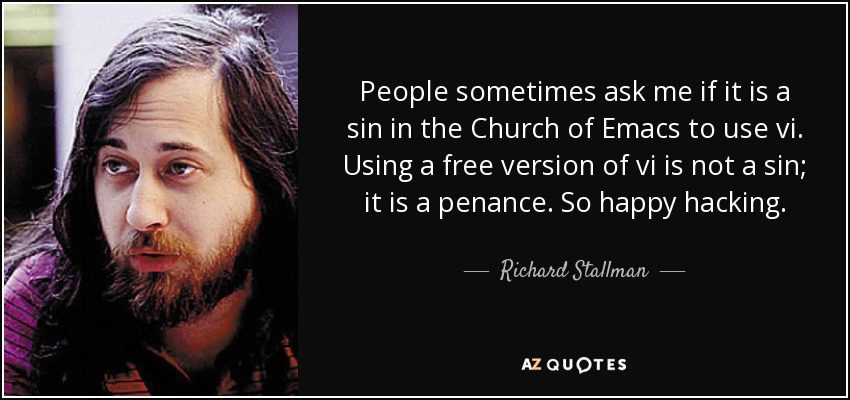Saint Emacs is Speaking

GNU Emacs is a text editor that programmers and researchers widely use. It is an extensible, customizable, self-documenting editor available on various platforms, including Linux, macOS, and Windows. Emacs is known for its powerful and flexible editing capabilities and its support for a wide range of programming languages and tools. It is often used as an integrated development environment (IDE) for programming and managing projects. Emacs has a large user base and an active development community, and it is free and open-source software.
Some advantages of GNU Emacs include:
- Extensibility: Emacs can be customized and extended with Lisp code, allowing users to add new features and functionality to the editor.
- Customizability: Emacs allows users to customize virtually every aspect of the editor, including keybindings, the layout of the user interface, and the behavior of commands.
- Support for a wide range of programming languages and tools: Emacs supports many programming languages and tools, and many third-party packages provide even more support.
Some limitations of GNU Emacs include:
- Learning curve: Because of its extensibility and customizability, Emacs can be a complex editor to learn, especially for new users.
- Performance: Emacs can be slower to start up and run than other editors, particularly on systems with limited resources.
Some competitors to GNU Emacs include:
- Vim: A popular, highly configurable text editor known for efficiently using keystrokes.
- Sublime Text: A commercial text editor popular among developers and known for its fast performance and user-friendly interface.
- Atom: An open-source text editor developed by GitHub that is known for its extensibility and support for collaboration.
Richard Stallman talks about Emacs and Vi in his “A Free Digital Society” speech in Modena, Italy, on November 24th, 2014.